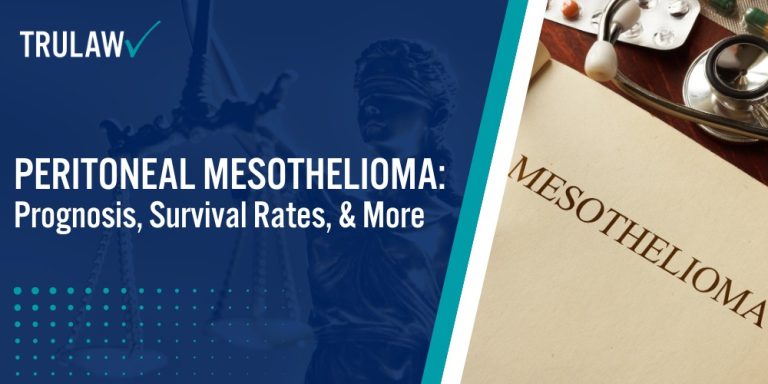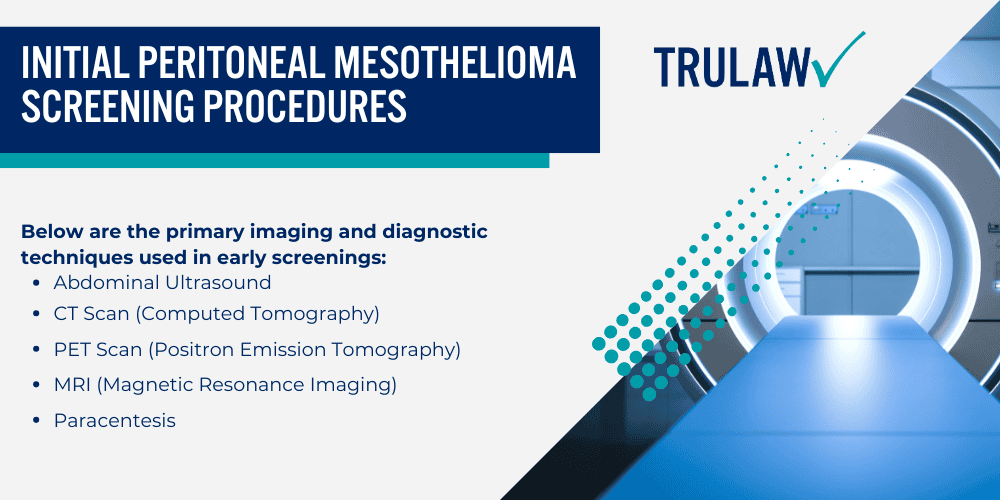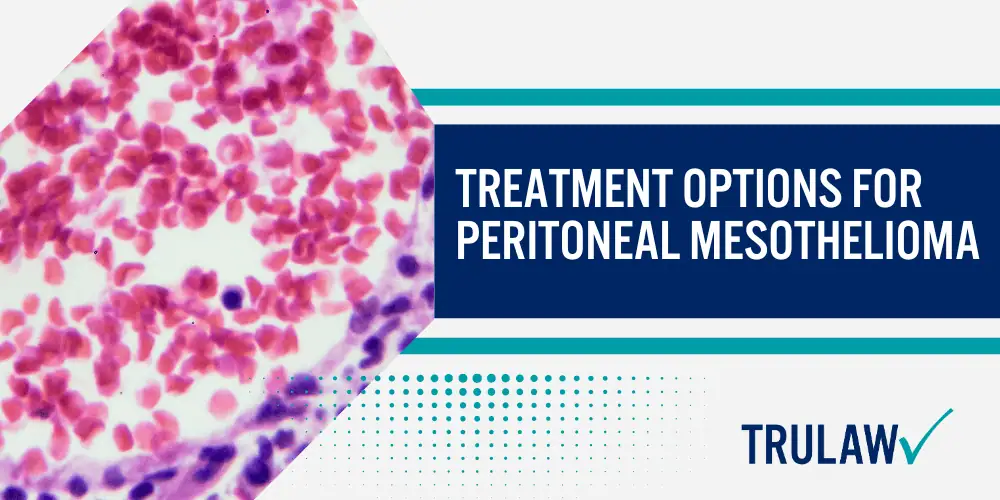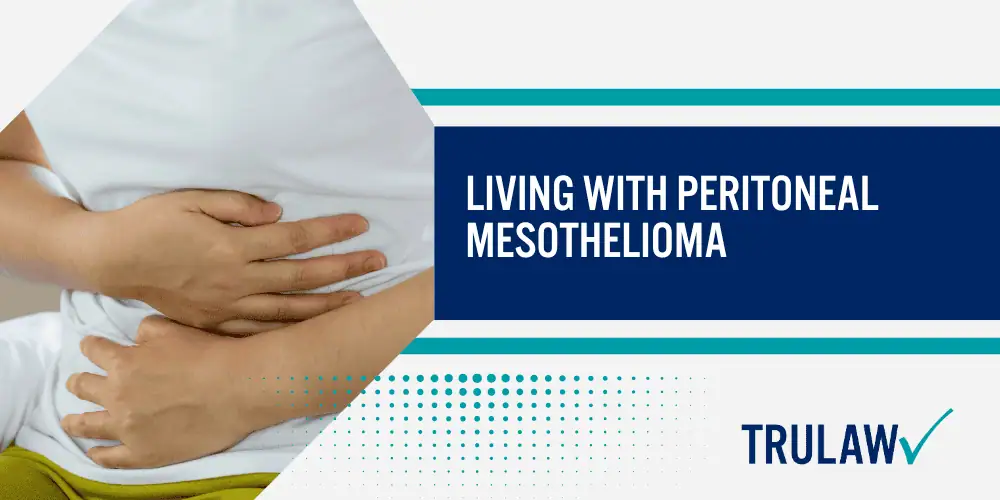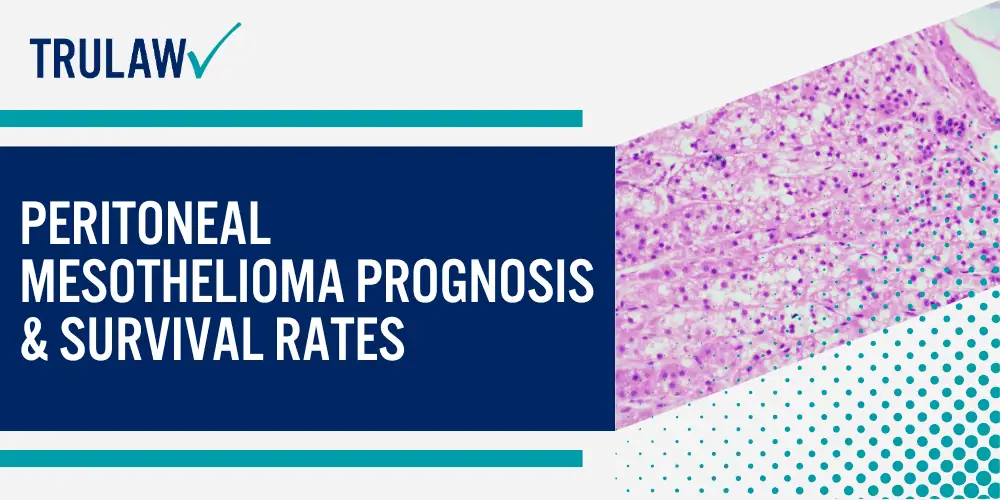Symptoms of peritoneal mesothelioma often develop gradually and may initially be misinterpreted as less severe gastrointestinal conditions, such as irritable bowel syndrome or dietary intolerances.
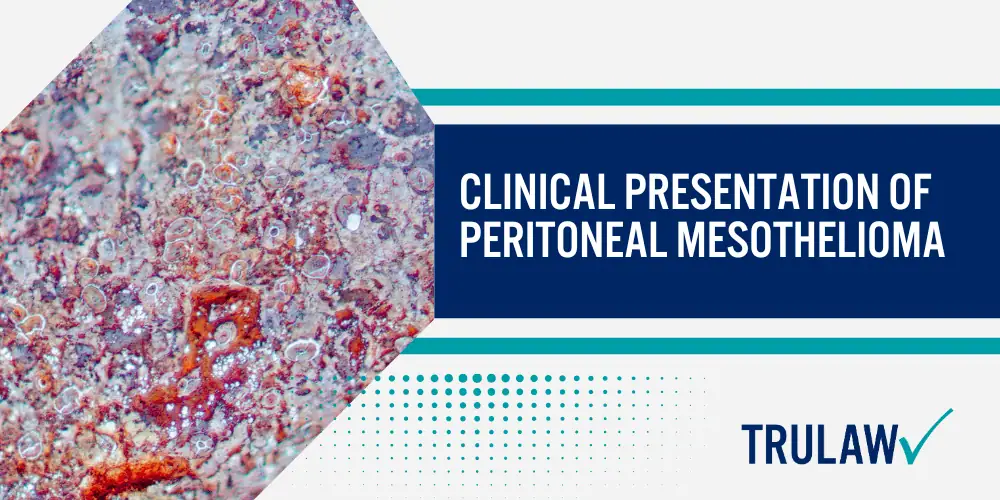
This asbestos-related cancer primarily affects the lining of the abdomen, leading to symptoms that can remain subtle for months or even years.
Early recognition of these symptoms is challenging, frequently resulting in delayed diagnosis.
Peritoneal Mesothelioma: Early Signs & Symptoms
The early symptoms of peritoneal mesothelioma include abdominal pain, swelling, and changes in bowel habits, which can be subtle and easily overlooked.
These initial symptoms are often mistaken for minor ailments, delaying diagnosis until the disease progresses.
Initially, abdominal discomfort may feel sporadic, and appetite changes may seem negligible, particularly in individuals without a known asbestos exposure history.
Early signs and symptoms of peritoneal mesothelioma may include:
- Abdominal pain or discomfort, often localized and mild, may worsen over time.
- Abdominal swelling or distension due to fluid accumulation (ascites).
- Unexplained weight loss or loss of appetite.
- Nausea or vomiting.
- Changes in bowel habits, such as diarrhea or constipation.
Individuals experiencing any combination of these symptoms, especially those with a history of asbestos exposure, should consider seeking a medical evaluation.
Detecting these symptoms early offers a better opportunity for diagnosis in early disease stages, which can be critical in managing progression.
Progression of Peritoneal Mesothelioma Symptoms
As peritoneal mesothelioma advances, symptoms can become more pronounced and significantly affect daily life.
Individuals may experience severe abdominal pain, increased abdominal swelling, and significant weight loss.
These intensified symptoms are often accompanied by fatigue and difficulty performing routine activities.
The progression of symptoms typically includes:
- Persistent, severe abdominal pain that intensifies over time.
- Significant abdominal swelling due to increased fluid accumulation.
- Severe weight loss and muscle wasting (cachexia).
- Anemia leads to fatigue and weakness.
- Bowel obstruction causes severe discomfort and digestive issues.
In advanced stages, symptoms can severely impact the quality of life and may limit treatment options.
Recognizing these signs promptly is essential, especially for those with an asbestos exposure history, as early intervention may improve prognosis and symptom management.
